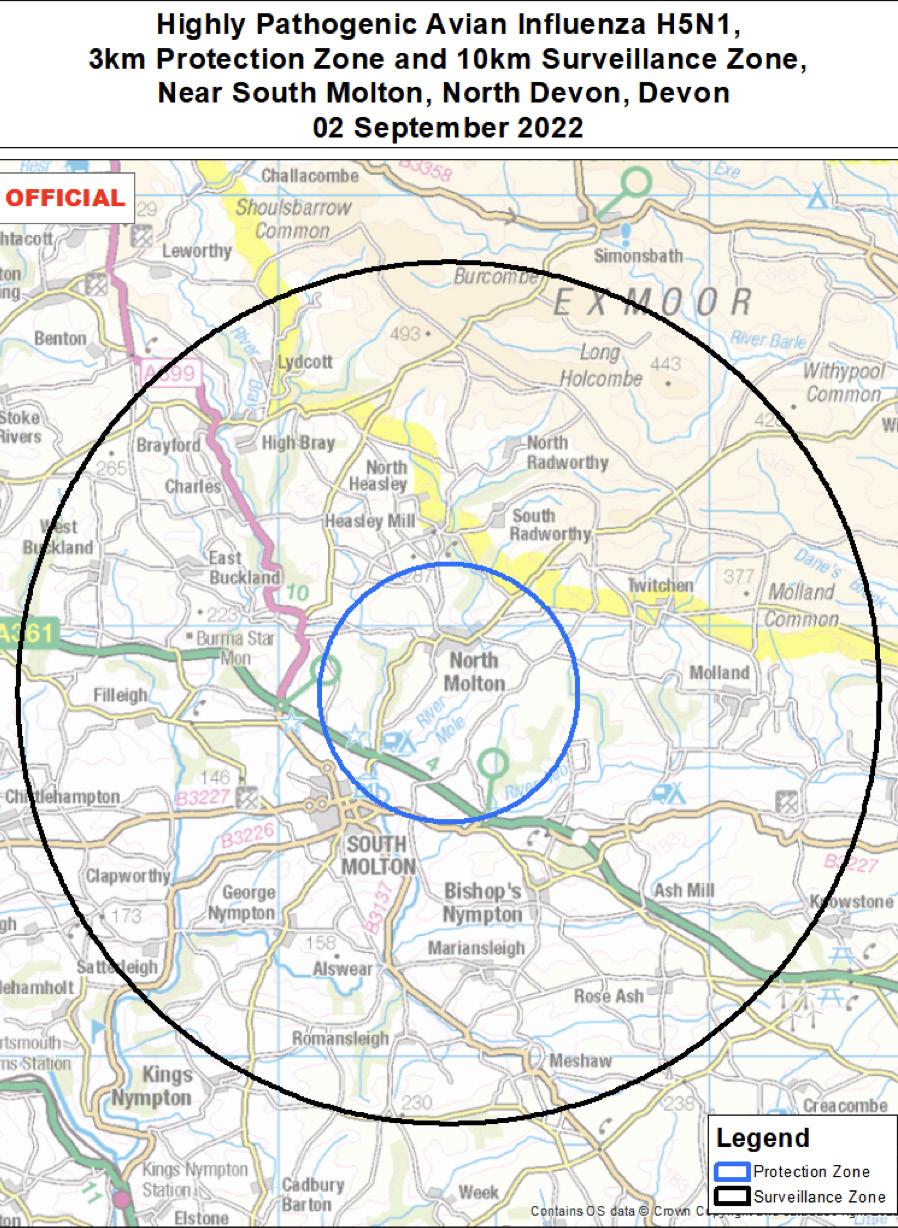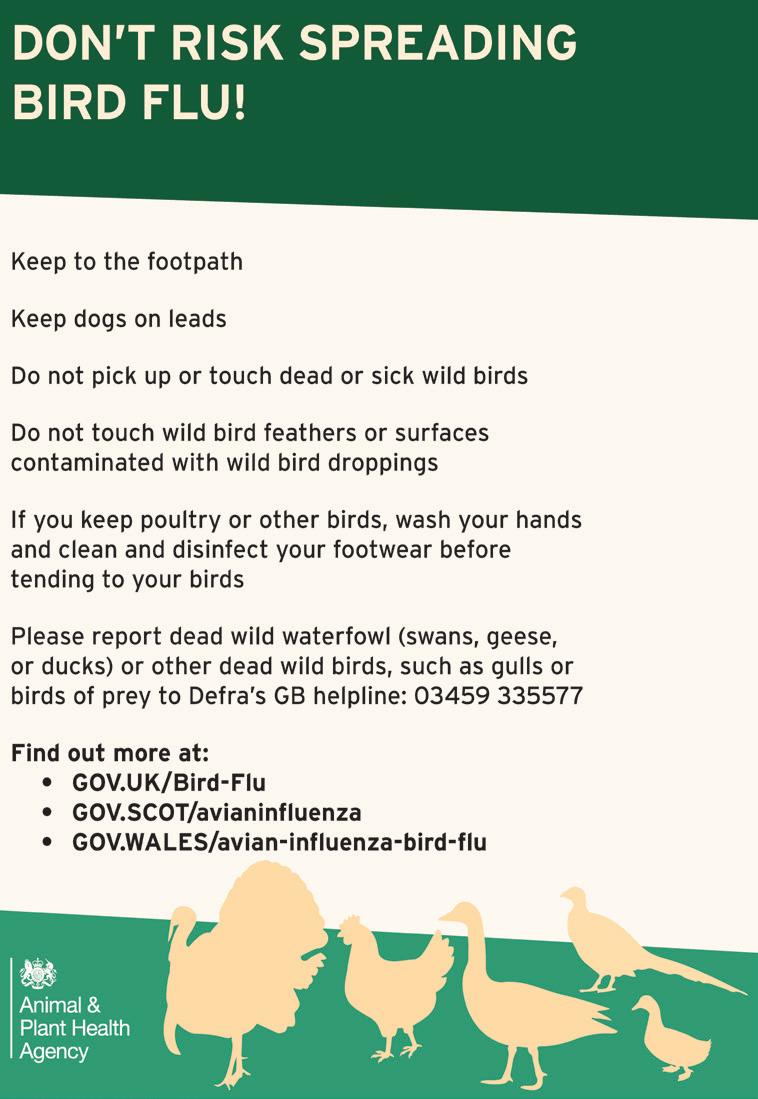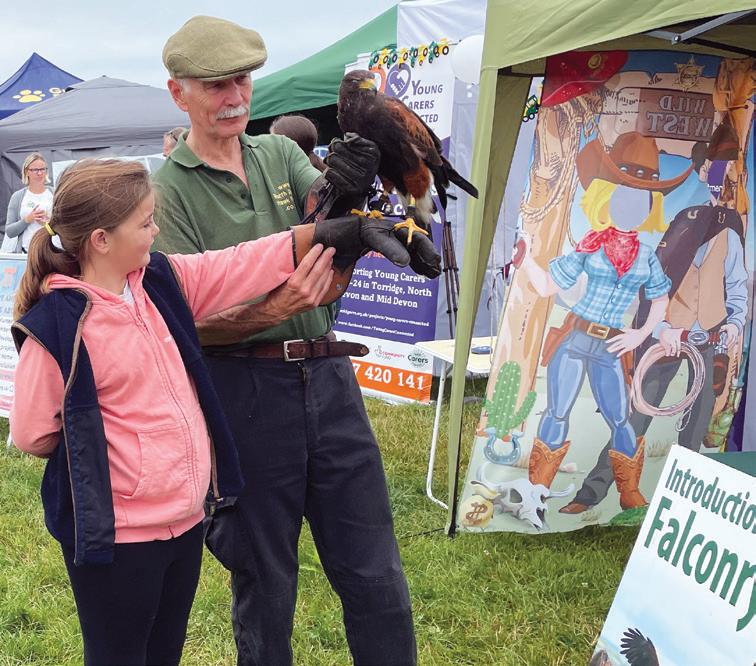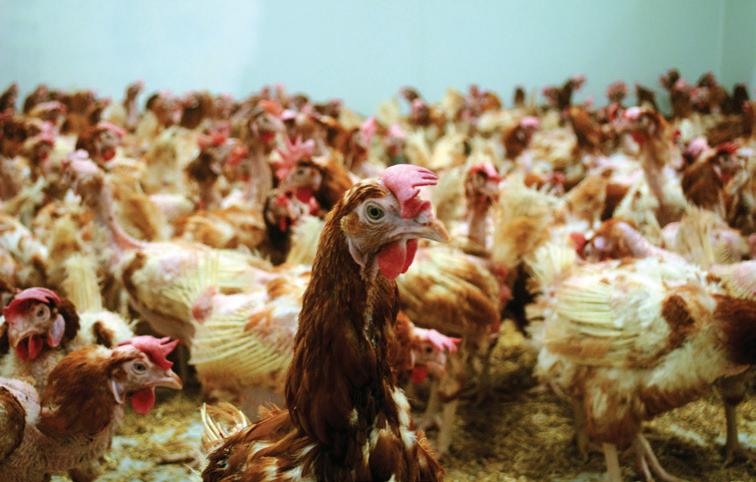
5 minute read
Bird flu lands in North Devon
Bird flu outbreak sees protection zone brought in
Pages 26-29
Advertisement
Birds have been culled and a three kilometre protection zone introduced between North Molton and South Molton, as the UK’s worst ever outbreak of bird flu escalated.
The H5N1 strain of the virus, which is highly contagious among birds, has been detected at a commercial location on Holdridge Lane. It’s understood to have been found among breeding pheasants.
Glynn Evans, head of game and gun-dogs at the British Association for Shooting & Conservation (BASC), said, “When avian influenza is confirmed in a captive flock, disease controls are put in place and there are legal requirements which must be complied with.”

Map courtesy: Defra

The BASC says that while shooting isn’t directly impacted, the release of game-birds is prohibited in disease control zones. Mr Evans added that they’re working with government agencies, other stakeholders, members, and the wider shooting community “to ensure we operate to the highest standards, follow all official requirements and play our part in tackling this disease.”
A 10 kilometre surveillance zone was also introduced by Defra (the Department for the Environment, Food & Rural Affairs) on September 2nd. It follows the introduction of an avian flu prevention zone for all of Devon and Cornwall on August 31st, meaning all keepers of birds must follow strict new rules.
The UK’s deputy chief veterinary officer Richard Irvine says, “This means that all bird keepers in the region must take action now to both prevent the disease getting in to flocks and it spreading any further. Whether you keep just a few birds or thousands, you are now legally required to introduce higher biosecurity standards on your farm or smallholding. It is in your interests to do so in order to protect your birds from this highly infectious disease.”
The UK Health Security Agency says the risk to public health from the virus is low and the Food Standards Agency advice remains that avian influenza poses a very low food safety risk. They say properly cooked poultry and poultry products, including eggs, are safe to eat.
(Continued p20-21)

As well as the Holdridge Lane site between North Molton and South Molton, Defra officials say bird flu outbreaks have also been confirmed near Tiverton and Cullompton in Mid Devon.
David George, from the South West National Farmers’ Union told Molton Monthly, “Aside from the potentially devastating financial consequences, the main impact is the stress and emotional strain that comes with an outbreak like this - no farmer wants to see this happen to their birds.”
“It is crucial that all keepers of poultry, whether they have a few birds in their garden or thousands on a commercial farm, make sure they have the relevant precautions in place.”
Bird flu impacts local charities and businesses
Nigel Penfold is a long term advertiser in Molton Monthly with his popular North Devon Hawk Walks business, taking people out on Exmoor to experience falconry first hand. “There are a lot of disappointed customers, and I’m having to contact them to either postpone or cancel their bookings,” he said.
Nigel Penfold displaying a hawk at the North Devon Show in August


The national charity the British Hen Welfare Trust is based at Rose Ash. Founder Jane Howorth said, “Avian Flu has hampered our daily work to save as many laying hens from slaughter as possible, and rehome them as family pets.”
“It is vital that anyone keeping poultry, including waterfowl and game birds, take precautionary measures to prevent their flock from succumbing to the disease.”


Former commercial caged hens recently saved from slaughter by the British Hen Welfare Trust
The charity has rehomed more than 800,000 commercial laying hens since 2005, and works to educate both hen keepers and the veterinary profession about hen health and their welfare.
“Whilst Avian Flu is a thorn in our side, I’m proud that our supporters and volunteers want to carry on helping these wonderful little birds,” added Jane. “Commercial laying hens make exceptional pets and with some simple steps, they can enjoy a free range retirement safely. If all of us take care to protect our birds, there is good reason to carry on enjoying keeping hens as pets.”
Animal rescue centre the Littlest Wildlife Hotel at Alswear, is also in the surveillance zone. Its founder Nikki Rule-Jackson said, “Whilst our captive birds are very well protected and we have biosecurity measures in place to ensure they remain safe, I am going to have to put a temporary freeze on any new wild or captive birds coming to us.”
In recent years bird flu has become an annual occurrence, arriving in the UK with winter migrating birds. Experts say it is now widely accepted to be endemic within the UK wild bird population.
Further bird flu information
A full list of measures to be taken is online: gov.uk/guidance/avian-influenza-bird-flu
All bird keepers are being encouraged to register their flocks, no matter how small: gov.uk/government/publications/poultryincluding-game-birds-registration-rulesand-forms
Please do not touch or pick up any dead or visibly sick birds that you find, but report them to Defra on 03459 33 55 77








